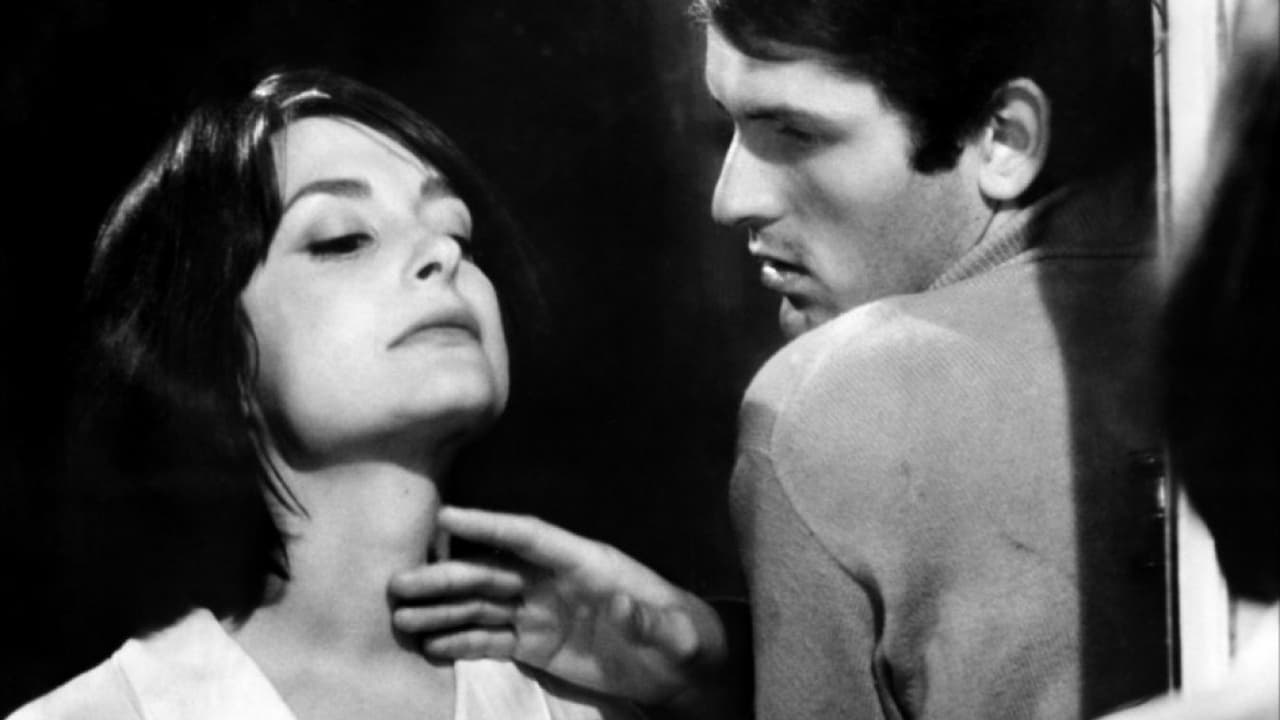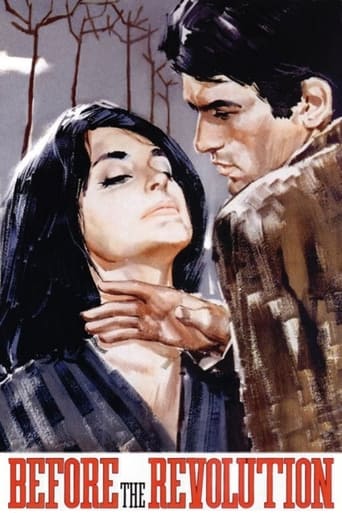

Is it immoral for a nephew and aunt to have an affair? ...who cares? - the question is barely raised. This is the Italian New Wave, a cineaste's dream; forget the story, for style is everything.Bertolucci's second film, at age 22, still owes a lot to his mentor Pasolini, but now he has taken on board Godard of "A Woman is a Woman" and Truffaut of "Jules and Jim". It's hopelessly overloaded with style but that makes it fascinating to watch. You never know what the camera is going to do next. A long monologue by Adrianna Asti contains so many zooms, pans, cross-cuts, reverse shots, asymmetrical framing, you name it - it's insane. You stop listening to what she is saying and just wonder what on earth Bertolucci is playing at. Playing at making movies I suppose.It's all fairly aimless but is beautifully shot and the script is quite fine. Asti seems natural as the fragile aunt and Bertolucci makes the most of her - there are moments when she's nudging Audrey Hepburn. There's plenty of gay subtext - a notable feature of many Bertolucci films, for anyone apt to enquire into such things - it certainly assists interpretation.Hardly juvenilia; if you're in the mood, this is a near masterpiece.
... View MoreOne of the typical ploys of modernist artists has been to take a known work, and to use that as a basis for experimentation. In this case, Bernardo Bertolucci (at the age of 22!) took Stendhal's novel THE CHARTERHOUSE OF PARMA and used the basic plot and characters, only Bertolucci abstracted these elements, taking them for granted and simply creating a wide-ranging collage of impressions and emotions. But the central love affair between Fabrizio and his aunt, Gina (the names of the characters in the Stendhal), is the motivating heart of the film; the suggestions of incest, the need for secrecy, the impacted emotion because of the covertness: these provide PRIMA DELLA RIVOLUZIONE with a core of great integrity, so that the more "random" elements (the scene with the lament on the lake, the scene at the opera, the scene where the friend rides the bicycle in circles, etc.) are able to reflect on Bertolucci's feelings regarding politics, class, revolution, art, the search for belief.PRIMA DELLA RIVOLUZIONE is one of the most youthful films ever made, as well it should be, since it was made by someone who was impossibly young at the time. I hate to say this, but it's the work of a prodigy, a gifted post-adolescent who is trying to find a form to contain his sometimes overwrought feelings about life, love, and politics. There had been many works catering to the teen crowd, movies like WHERE THE BOYS ARE or BEACH PARTY, but, aside from some of the works of Nicholas Ray (THEY LIVE BY NIGHT and REBEL WITHOUT A CAUSE), no film artist had yet tried to use the medium as a vehicle for a vision of youthful passions from the inside: Godard would follow with MASCULINE FEMININE and LA CHINOISE, Bertolucci with FISTS IN THE POCKET, Skolimowski with LE DEPART and DEEP END, but Bertolucci was pioneering when he made this movie, and the fact that it's "flawed" should not be held against it, as it represents the expression of a very young artist, trying to express his emotions as directly as possible.
... View MoreBefore the Revolution (Bernardo Bertolucci, 1964) - 9.5/10 This is by far, the best thing Bernardo Bertolucci has ever done. I've always been impressed by the man's style but there has also always been something keeping me from becoming even remotely attached to his films. Whether it be the sterility in Partner or the overacting in Last Tango, I've never been able to appreciate his obvious talent. The fantastic cinematography from Aldo Scavarda (most famous for his work on L'Avventura) definitely gives it a very Antonioni feel but at the same time the film has a very playful edge, something neither Bertolucci or Antonioni could ever grasp. (which isn't an insult on Antonioni's part, his films never called for) I suppose Bertolucci sort of tried to do this in Last Tango in Paris with the JPL subplot but I always found that part of the film to be really awkward and ill-fitting. Here, though, it meshes perfectly and creates one of the most poignant portraits of a doomed romance that I've ever seen. I could complain that the characters talk in a far too poetic way but the film also has that "spontaneous" energy thing going for it so much so that the dialogue isn't particularly obnoxious. It may sound a bit too "film-nerdy" but this just seems like a perfect stylistic combination of Antonioni and Godard.
... View MoreThe overall plot deals with a young man drawn to his aunt set in Italy prior to its participation in the war.If you watch this film looking at the plot, actor performances, whether it is well directed, etc, you will miss its beauty.You need to relax, sit back and enjoy the juxtaposition of the visual over the music, especially in the last half. It is a wonderful experience. Bertolucci obviously decided not to conform to the intellectualism of Fellini or the structured approach of Zeffirelli.The scene at the theatre, where the young man faces his aunt, set to the background of the opera is almost a dance.Give the left brain a rest and enjoy.
... View More